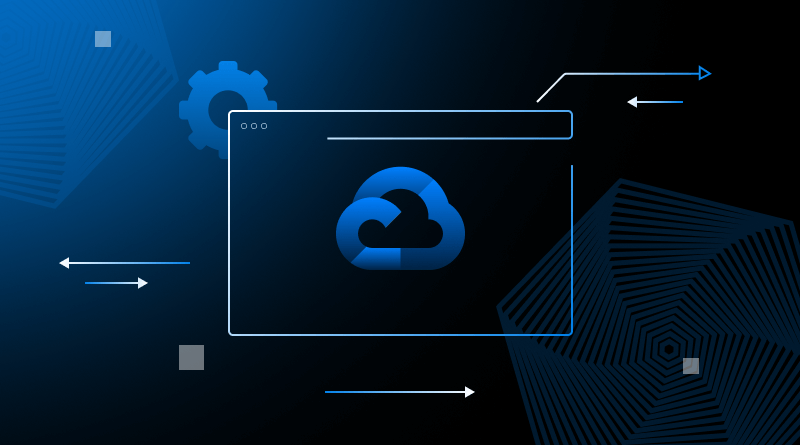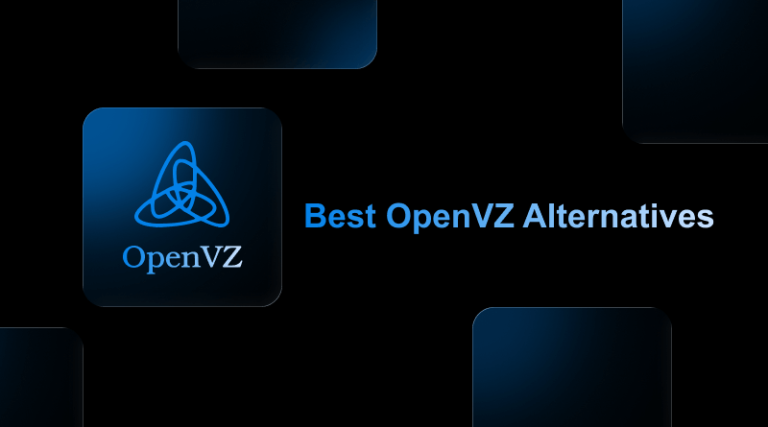Ever tried spinning up a project on Google Cloud and felt like you needed a certification just to keep track of the services? You’re not alone. Google Cloud is powerful—no one’s denying that—but let’s be honest: the “enterprise-first” approach often feels more like overkill than help. Not everyone wants to wrestle with its complexity or pay for the steep pricing bills and endless dashboards.
That’s why so many developers look for the best Google Cloud alternatives. Not because Google Cloud is bad, but because sometimes you just want tools that cut the noise and let you build. Whether it’s a platform with simpler pricing, a reliable web host that’s easier to navigate, or just something built with developers in mind, the good news is—you’ve got plenty of choices.
This guide takes a closer look at real Google Cloud hosting competitors —options that developers actually use and stick with. From the giants like AWS and Azure to lighter platforms like DigitalOcean and Linode, plus a few niche providers, we’ll cover what makes each worth considering.
Table Of Content
Why Look Beyond Google Cloud?
Let’s be clear: Google Cloud isn’t bad. In fact, it’s excellent for the right projects—machine learning, massive datasets, or anything that plays nicely inside Google’s ecosystem. But for everyday developers, it comes with a few challenges:
- Too much setup – Managing a project feels like you need a manual just to deploy “Hello World.”
- Bills that surprise you – You budget for a certain amount, but the invoice ends up being much higher.
- More power than you need – Running a small web app on Google Cloud Platform (GCP) can feel like renting an industrial warehouse to store a single box.
That’s where GCP alternatives for developers step in. Some cost less, some are easier to use, and some offer nearly the same performance without the extra complexity.
Best Google Cloud Alternatives
1. Amazon Web Services (AWS)
Think of AWS as the pioneer—it’s been around since 2006 and basically set the standard for cloud hosting. You’ll see it in small startups and established enterprises alike.
Why developers still lean on AWS
- Huge range of services—compute, storage, databases, AI, IoT, and more.
- Data centers are almost everywhere.
- Tons of SDKs, docs, and integrations.
Where it fits best: If you’re running serious production workloads that need scale and rock-solid reliability, AWS is tough to beat. Many companies rely on EC2 and S3 to keep their operations running.
The tradeoff: AWS isn’t beginner-friendly. The dashboard has a complicated interface, and pricing can feel confusing. It works well for larger teams, but smaller teams may find it overwhelming.
2. Microsoft Azure
If your stack relies on Microsoft technologies—like .NET, SQL Server, Windows Server—Azure is often the natural choice. It ranks just behind AWS in terms of global market share.
Why Azure appeals to developers
- Easy integration with Microsoft tools such as Visual Studio and GitHub.
- A wide variety of PaaS offerings for application deployment.
- Global reach with data centers all over the place.
Most suitable for: Organizations using Microsoft products. If your workflow is built on Outlook, Teams, and Office 365, Azure works perfectly.
Limitation: The documentation can be confusing at times, and pricing, like AWS, can be tricky. Developers not using Microsoft tools may find it less straightforward.
3. MilesWeb
For developers seeking a dependable option, MilesWeb is worth noting. Known for reliable hosting at competitive prices, MilesWeb offers the best cloud hosting for developers.
Why MilesWeb stands out
- Fast servers and plans that fit your needs
- Local support with real-time assistance.
- Scalable infrastructure designed for businesses and dev projects.
Where it differs
- A focused ecosystem, which keeps things simpler for developers.
- Less sprawling than AWS or Google Cloud, which means a cleaner, more straightforward platform.
Ideal for: Small teams or developers looking for stable and cost-effective cloud hosting solutions.
4. Digital Ocean
DigitalOcean keeps cloud hosting simple. The idea is clear—developers can launch a server in minutes and know exactly what it will cost them.
What sets it apart
- Simple, elegant dashboard.
- Transparent, predictable pricing.
- A huge collection of tutorials written and shared by the community.
Ideal for: Indie developers, startups, and SaaS builders who want reliable hosting without being buried in enterprise clutter.
The challenge: If you require more advanced services such as managed AI solutions or big data pipes, you’ll have to look elsewhere. But for the majority of app hosting requirements, DigitalOcean is the balanced choice.
5. Linode (Now Akamai)
Linode has always been a developer favorite, and with Akamai stepping in, it now pairs solid VPS hosting with better global reach.
Why it appeals
- Straightforward VPS hosting.
- Reasonable, transparent pricing.
- Community support that actually helps.
Best for: Ideal for developers who want control over their servers without struggling with complicated dashboards.
Drawbacks: It’s not loaded with higher-end services like AWS or GCP. You get reliability, but not the full buffet of extras.
6. Vultr
Vultr doesn’t make a lot of buzz, but it’s quietly developed a loyal developer base. It offers simple, affordable hosting with an impressive range of data center locations.
Why developers prefer it
- Competitive flat-rate pricing.
- Fast NVMe storage.
- Global presence with plenty of server locations.
Ideal for: Teams that need hosting without the overhead.
Limitations: The support community is thinner than what you get with the big clouds.
7. IBM Cloud
IBM Cloud keeps it functional—handling hybrid setups and running Watson AI for projects that need specialized support.
Suitable for
- Existing enterprises on IBM systems.
- Developers experimenting with AI/ML using Watson.
- Teams working with hybrid setups.
Drawback: Fewer user forums and developer guides than bigger platforms, which can make finding solutions difficult.
8. Heroku
Sometimes developers don’t want to deal with servers at all. That’s Heroku’s selling point: push code, and it takes care of the rest.
Why developers love it
- Deploying is as easy as git push heroku main.
- Ideal for prototypes and rapid deploys.
- The Marketplace is full of add-ons like databases and server monitoring.
The catch: Heroku comes at a premium cost. The free tier is gone, and once you scale, costs rise quickly. It’s better for smaller apps and MVPs than for full-scale products.
9. Oracle Cloud
Oracle’s cloud platform often flies under the radar for developers, but it has one massive selling point: a generous free tier.
Why it’s interesting
- Always-free virtual machines, storage, and networking.
- Decent global infrastructure.
Who benefits most: Developers willing to test, learn, or run smaller apps without paying upfront.
What to be aware of: The platform isn’t as refined as others, and Oracle’s “enterprise complexity” reputation occasionally comes through.
10. Cloudways
Cloudways is a managed hosting platform that sits on top of providers like DigitalOcean, Linode, Vultr, AWS, and Google Cloud—but takes away the server management burden.
Developer-friendly features
- Simplifies server management with an easy dashboard.
- Offers one-click scaling and backups.
- Good balance of performance and support.
Limitation
- Slight markup on provider pricing.
Best fit: Developers looking for the potential of major cloud providers, without hands-on server management.
Local and Niche Providers
Don’t overlook local providers. If your users are clustered in one region, a smaller provider can give you lower latency, straightforward pricing, and customer support that doesn’t feel outsourced.
For instance, developers often prefer cost-effective cloud hosting with local data centers and proactive customer support. It may not boast the same massive library as AWS, but for local projects, it can be a better choice.
What to Think About Before Switching
Switching from one cloud to another isn’t merely about features. Keep these in mind:
- Budget – Can you handle enterprise pricing, or do you need fixed, predictable bills?
- Ease of access– Do you want complete control, would limited access work?
- Ecosystem – Does it work well with your essential tools?
- Community & support – Is it easy to get assistance when you get stuck?
Smart Ways to Test Alternatives
You can move your projects gradually instead of switching everything at the same time. A few simple steps can save headaches:
- Try a side project first— Kick the tires without risking production.
- Use free credits— Most platforms give you beginner offers—make use of them.
- Check the billing dashboard— If it confuses you now, it’ll frustrate you later.
- Plan your exit—- Make sure you can move your project if things don’t work out.
Google Cloud has its place—it’s strong, global, and deeply integrated into the Google ecosystem. But it isn’t always the right fit. Whether it’s AWS for scale, DigitalOcean for simplicity, Linode for control, or providers like MilesWeb for cost-effective hosting solutions, developers today have plenty of alternatives.
The real win is choosing what matches your project—not what looks best on paper. For a large-scale SaaS with thousands of users, AWS or Azure might be the solution. For side projects, startups, or regional apps, lighter platforms often deliver more value with less hassle.
At the end of the day, it comes down to Google Cloud vs. other cloud providers—picking the platform that lets you build, test, and launch without surprise costs or extra clutter. That’s what developers actually need from the cloud.
FAQs
1. What makes a Platform-as-a-Service (PaaS) a good alternative to Google App Engine?
When developers look at Google Cloud alternatives, a good PaaS stands out if it reduces the setup time and lets you migrate the code faster. The real value is in avoiding the excessive server configs, scaling issues, and patch management. A platform that handles the infrastructure smartly in the background while giving you clear pricing is what makes it worth considering.
2. How does the networking architecture differ between GCP and its competitors?
One of the key highlights in Google Cloud hosting competitors is networking. Google runs on its own private backbone, the same network lines that power YouTube and Gmail. That’s tough to beat. AWS, Azure, and others do things differently, relying on vast regional data centers and offering you precise control with VPCs and subnets. Smaller providers simplify it — fewer dials, easier setup — but usually without the same global reach. It comes down to whether you want raw control or something easier to manage.
3. How do developer-focused clouds technically compare to Google Cloud?
If you line up GCP alternatives for developers against Google Cloud, the biggest difference is how heavy things feel. Google Cloud comes with layers of services, permissions, and dashboards that work great for big enterprises but can slow down smaller teams. Developer-focused platforms usually strip that down. You get fast servers, a clear setup, and less clicking around before you can actually build. It’s less about fancy extras and more about getting your code running without friction.














